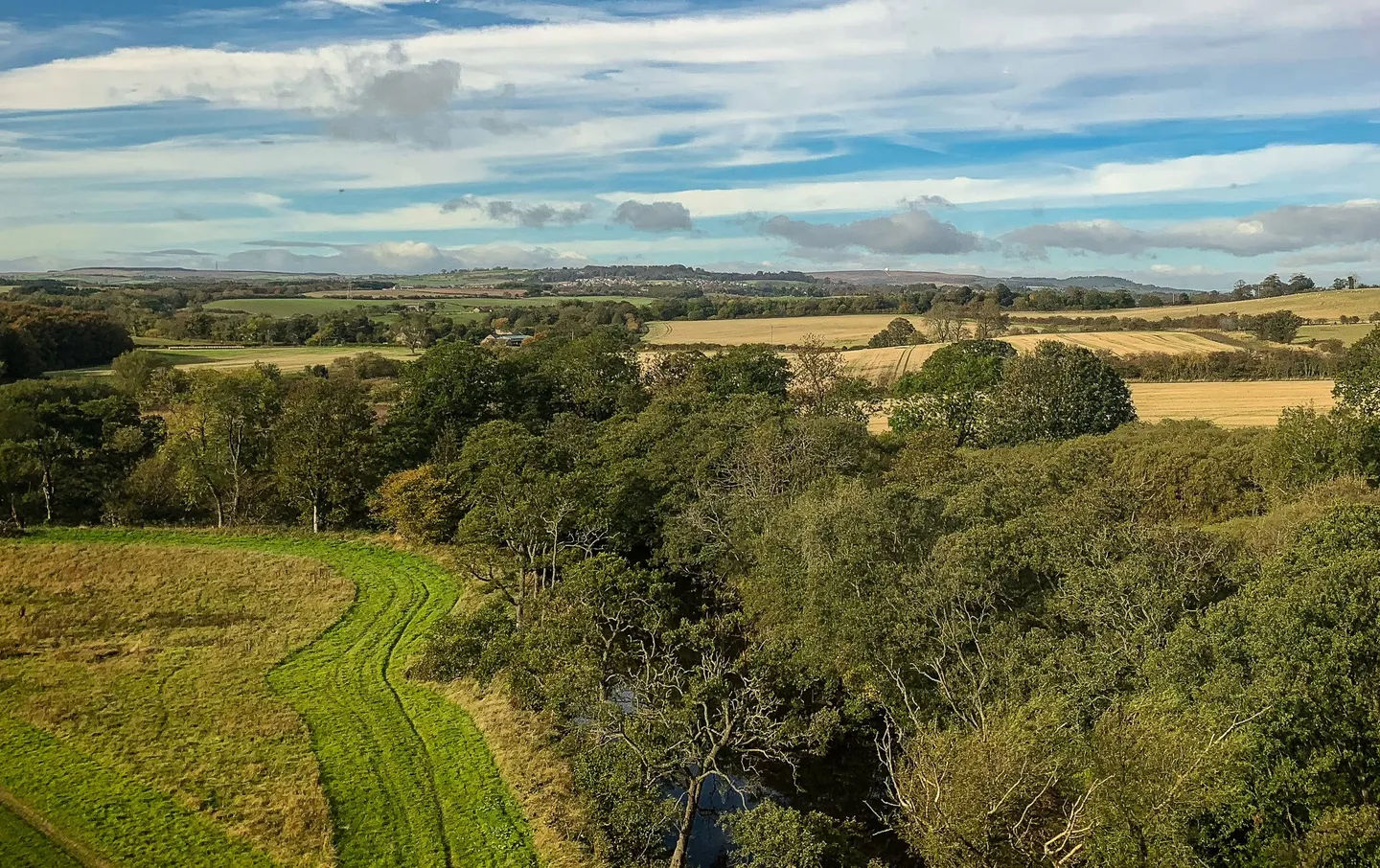Rural Landlords in Crisis: Insights from Argyll and Bute's Private Rented Sector

A comprehensive study on the private rented sector (PRS) in Argyll and Bute, Scotland, has unveiled a series of complex challenges threatening the stability of rural housing. The report, “The Challenges Faced by Rural Landlords: The case of Argyll and Bute,” authored by Dr. Andrew Robert Watson, represents the first major investigation into rural landlordism in Scotland.
Housing Emergency Declaration
On June 12, 2023, Argyll and Bute became Scotland’s first local authority to declare a housing emergency. This declaration underscores the severity of the situation, which the report attributes to increasingly acute challenges exacerbated by the current economic climate.
The Argyll and Bute Council Team Lead on Housing Strategy elucidates the multifaceted nature of the crisis:
We’ve taken a whole housing market approach […] There are pressure points right across the housing market - not enough properties for sale; not enough private developers wanting to build for speculative sale […] [We’ve seen a] 29% increase in homelessness in 22/23, an 8% increase in the number of households on the social housing waiting list, and a 20% increase, at least in construction costs.
Private Rented Sector: A Critical Component
The PRS, accounting for approximately 10% of households in Argyll and Bute, plays a crucial role in rural housing provision. However, the sector faces unprecedented challenges that threaten its stability and growth potential. Demographic Profile and Investment Returns
The study reveals that the majority of landlords in Argyll and Bute are small-scale, part-time investors, with 39% aged 65 or older. This aging demographic raises concerns about sector sustainability. Moreover, the financial viability of PRS investments is under scrutiny, with the report stating that over one third of landlords (36%) achieve a net yield of 3% or less.
One landlord, identified as Steve, comments:
I don’t think that 4% return is actually adequate… for investment like that, we are taking a certain amount of risk.
Challenges facing Rural Landlords
The report delineates a complex web of challenges facing rural landlords in Argyll and Bute, many of which are exacerbated by the unique characteristics of rural property management. These challenges not only impact the financial viability of landlords’ investments but also have broader implications for housing availability and community sustainability.
Maintenance and Property Upkeep
Rural properties often present unique maintenance challenges due to their age, construction methods, and exposure to harsh environmental conditions. One landlord articulates this issue:
Trying to get rural properties up to specific standards of insulation is almost impossible. 90% of the rural properties have been built in the 1800’s, and not in the twentieth or twenty first centuries and they’re not the easiest of properties to insulate. Yes, it can be done but the costs are absolutely prohibitive.
The report highlights that these maintenance challenges are compounded by what it terms a “rural maintenance premium,” reflecting the increased costs and logistical difficulties of undertaking repairs in remote locations.
Scarcity of Skilled Tradespeople
The shortage of qualified tradespeople emerges as a critical issue, with far-reaching consequences. This scarcity not only delays essential repairs but also impacts landlords’ ability to comply with regulatory requirements. One landlord describes the situation:
You just shout and hope that they’ll come, you just have to keep phoning and phoning and texting. Sometimes they don’t even reply. The hassle in getting a tradesman stresses me out.
The report notes that this shortage is particularly acute in island communities, where bringing in mainland-based tradespeople incurs significant additional costs.
Regulatory Compliance and Legislative Burden
The increasing legislative burden emerges as a major concern for landlords. The report reveals that 62% of landlords feel the current legislative environment does not support PRS investment. Landlords express frustration with what they perceive as a lack of understanding from policymakers about the realities of rural property management. One landlord states:
I think the Scottish Government is very close to triggering a total collapse of the PRS some would say that is maybe what they are trying to achieve.
Energy Efficiency Requirements
Impending energy efficiency regulations represent a significant challenge, with 43% of landlords citing this as their primary concern for future legislation. The report highlights the difficulties landlords face in upgrading older properties to meet these standards, both in terms of practicality and cost-effectiveness.
A landlord explains:
I can’t see what I can do to get it to a C [EPC rating]. The man from [a local surveying company] that did it, he was very helpful. He said I would need to take the internal walls down to the lathe and plaster and I would have to bring them in to make space for more insulation… Now, that’s a major disruption for a tenant.”
Economic Viability and Return on Investment
The financial viability of PRS investments is under increasing pressure. The report reveals that over one-third of landlords achieve a net yield of 3% or less, a figure that barely outpaces inflation and falls short of returns available from other investment vehicles.
One landlord comments:
We’re certainly now at the stage where our wealth is diminishing rather than increasing. And that that’s because of the changing economics of the private rental sector.”
Rural Infrastructure and Services
The report also highlights challenges related to rural infrastructure, including transportation and access to services. These issues not only affect landlords’ ability to manage properties effectively but also impact the attractiveness of rural properties to potential tenants.
A landlord notes:
Access is a great difficulty. You cannot rent a flat in this area unless you’re on a bus route because people renting flats would have to have a car that can’t necessarily afford a car.
Demographic Pressures
The aging profile of rural landlords presents a looming challenge for the sector. With 39% of landlords aged 65 or older, questions arise about succession planning and the long-term sustainability of the rural PRS.
One landlord reflects:
We are not young and fit any more and not able to respond in the way we’d like to, were trying to be supportive landlords, you know, supportive- maintaining a safe environment for people.
The multifaceted challenges facing rural landlords in Argyll and Bute paint a picture of a sector under significant strain. From maintenance difficulties and skilled labor shortages to regulatory pressures and economic constraints, landlords are grappling with a complex array of issues that threaten the viability of their investments and, by extension, the availability of private rented accommodation in rural areas.
These challenges underscore the need for targeted policy interventions and support mechanisms that recognize the unique circumstances of rural landlords. As the report suggests, addressing these issues will require a collaborative effort from policymakers, local authorities, and sector stakeholders to ensure the long-term sustainability of the private rented sector in rural Scotland.
Legislative Environment and Government Understanding
The report highlights a significant disconnect between landlords and policymakers. Sixty-two percent of surveyed landlords believe the current legislative environment does not support PRS investment. Furthermore, 74% assert that the Scottish Government lacks understanding of the challenges faced by rural landlords.
Key Challenges Identified:
- Property Maintenance: The unique characteristics of rural properties present significant maintenance challenges, particularly concerning energy efficiency upgrades.
- Skilled Labor Shortage: The scarcity of tradespeople in rural areas leads to increased costs and delays in essential repairs and compliance work.
- Energy Efficiency Regulations: Impending energy efficiency requirements are a primary concern for 43% of landlords surveyed.
- Rural Infrastructure: Transportation limitations and access to services present additional obstacles for rural landlords and tenants.
Sector Stability Concerns
The report’s most alarming finding is that 33% of landlords intend to sell some or all of their properties. This potential exodus could significantly impact rural housing availability. Landlords cite the cumulative effect of legislation, rent control measures, and increased costs as primary motivators for market exit.
Recommendations
The report offers targeted recommendations for various stakeholders:
- Citizens Advice Scotland:
- Enhance landlord-focused services and content
- Conduct additional evidence-based sector research
- Argyll and Bute Council:
- Improve communication with landlords
- Strengthen enforcement activities
- Scottish Government:
- Clarify the PRS’s role in housing strategy
- Enhance sector data collection
- Consider direct landlord representation in policy-making
- Review current and proposed legislation
- Address skilled labor shortages
- Provide clarity on energy efficiency improvement funding
Conclusion
This pioneering study on rural landlordism in Argyll and Bute reveals a sector at a critical juncture. The challenges facing rural landlords are multifaceted and complex, encompassing property maintenance issues, legislative burdens, and economic pressures.
The findings underscore the need for urgent action from policymakers, local authorities, and sector stakeholders to address these challenges and ensure the sustainability of the private rented sector in rural Scotland. Failure to act could exacerbate the housing emergency and have far-reaching consequences for rural communities.
As the rural housing landscape continues to evolve, the insights provided by this report offer a crucial framework for addressing the complexities of rural housing provision and supporting the vital role of private landlords in Argyll and Bute and beyond.
You can find the full report “The challenges faced by rural landlords: The case of Argyll and Bute” on the UK Collaborative Centre for Housing Evidence website.
